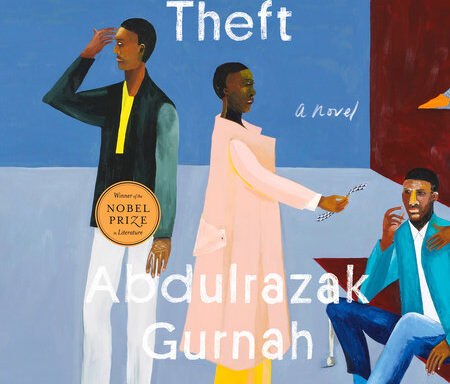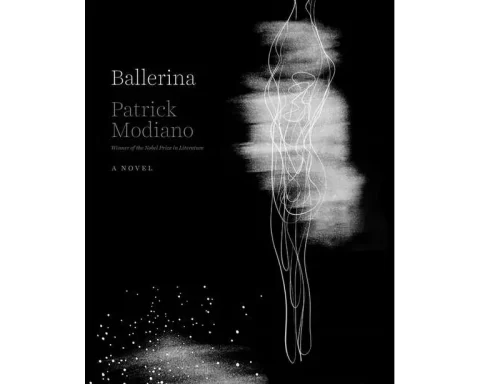The Spirit of Science Fiction: A Novel
From a master of contemporary fiction, a tale of bohemian youth on the make in Mexico City
Two young poets, Jan and Remo, find themselves adrift in Mexico City. Obsessed with poetry, and, above all, with science fiction, they are eager to forge a life in the literary world–or sacrifice themselves to it. Roberto Bolaño’s The Spirit of Science Fiction is a story of youth hungry for revolution, notoriety, and sexual adventure, as they work to construct a reality out of the fragments of their dreams.
But as close as these friends are, the city tugs them in opposite directions. Jan withdraws from the world, shutting himself in their shared rooftop apartment where he feverishly composes fan letters to the stars of science fiction and dreams of cosmonauts and Nazis. Meanwhile, Remo runs headfirst into the future, spending his days and nights with a circle of wild young writers, seeking pleasure in the city’s labyrinthine streets, rundown cafés, and murky bathhouses.
This kaleidoscopic work of strange and tender beauty is a fitting introduction for readers uninitiated into the thrills of Roberto Bolaño’s fiction, and an indispensable addition to an ecstatic and transgressive body of work.
Editorial Reviews
Review
About the Author
FICTION
A Bolaño Novel About Young Poets in Mexico City, Hungry for Fame, Sex and Adventure. No, Not That One.
By Liesl Schillinger
Jan. 28, 2019
THE SPIRIT OF SCIENCE FICTION
By Roberto Bolaño
Translated by Natasha Wimmer
It’s sometime in the early 1970s, and a blond, lanky, 17-year-old poet named Jan Schrella is writing a fan letter to one of his literary heroes, Ursula K. Le Guin, describing his living situation. “I was born in Chile, but now I live on a rooftop in Mexico City, with views of incredible sunrises,” he tells her. “There are a number of rooms on the roof, but only five are inhabited.” Cold-water shower stalls and outhouses form a ramshackle central corridor on the rooftop, bordered by flowering planters that lend a “cheerful tropical air.” Anyone who has seen Alfonso Cuarón’s nostalgia-drenched film “Roma,” named for a Mexico City neighborhood north of Jan’s and set in the same era, can picture the scene. But this is not a movie, it is a book, “The Spirit of Science Fiction,” written by the Chilean author Roberto Bolaño around 1984, when he was 31, but not published until 2016 in Spanish; and now in English, in Natasha Wimmer’s superb translation. With words alone, Bolaño summons a visual world, creating in this book, as in his others, what Mario Vargas Llosa has called “images and fantasies for posterity.”
Jan sleeps in the nude on a bare mattress on the yellow and brown brick floor of his rooftop room, which he shares with a fellow writer named Remo Morán and where, he tells Le Guin, he writes “letters and drafts of something that one of these days might become a science fiction novel.” Jan and Remo’s friends drop by at all hours: the charismatic Torrente sisters, Angélica — a prizewinning poet at 17 — and Lola, her “powerful shadow” older sister; and the literary roustabout José Arco. José Arco rides his motorcycle to Jan and Remo’s “at 3 or 4 in the morning, waking us up with a long cry, like a wolf.” By day, while Jan reads, Remo and José Arco ride around town on the motorcycle, Remo perched on the “precarious” rear seat, investigating the sudden proliferation of literary magazines in Mexico City — from 32 to 661 in one year. They track down a publisher who dismisses the phenomenon; the magazines are “photocopied sheets, mimeographed sheets, even handwritten sheets,” he scoffs, as ephemeral as a “distant jet trail” (a concept Bolaño would revisit in his 1996 novel “Distant Star”).
Bolaño’s admirers will find in these themes and players a satisfying proleptic glimpse of his picaresque masterpiece, 1998’s “The Savage Detectives” — a circuitous hunt for vestiges of an underground “visceral realist” literary movement and its muse, the poet Cesárea Tinajero, which starts in Mexico City and detours to the Sonora Desert, Paris, San Diego, Barcelona and elsewhere.
ADVERTISEMENT
Angélica and Lola Torrente prefigure Angélica and María Font, José Arco anticipates Ulises Lima and a toothless Tiresian poetess named Estrellita gives a foretaste of Tinajero; but these characters, archetypes for Bolaño, are integrated here into a narrower time frame. At the Torrentes’ house, Remo falls in love with a girl named Laura, and a chapter about their visits to Mexico City’s bathhouses, which appeared out of context in Bolaño’s posthumous poetry collection, “The Unknown University,” forms a natural coda here. It can be reckless to draw connections between an author’s life and his work, but this book invites such comparisons. Late in the novel, when Jan writes a letter to another sci-fi hero, he signs it with the pseudonym “Roberto Bolaño.” The reader thrills at this revelation, one of many “coded messages” in this playfully difficult, gem-choked puzzle of a book, and the most nakedly exposed. “The Spirit of Science Fiction” serves as a key to Bolaño’s later work, unlocking clues to his abiding obsessions.
From 1968, when he was 15, to 1977, when he moved to Europe, Bolaño lived mostly in Mexico City, where he read incessantly, caroused, fell in love, wrote poetry and scathing reviews, lurked in cafes, and founded a vigorous yet vague literary movement called “infrarrealismo.” The “infrarealists,” young rebel poets, artists and writers like himself, liked to stage provocations — for instance, disrupting a reading by the Mexican giant of letters Octavio Paz by shouting “Paz is an idiot!” In Mexico City in the ’70s, Bolaño’s Sancho Panza — the model for José Arco and Ulises Lima — was the poet provocateur Mario Santiago Papasquiaro. Decades later, this fraternity re-emerged in “The Savage Detectives” as “visceral realists.” But they got their first outing, without a name, in “The Spirit of Science Fiction.” The mayhem and energy of their embrace of the poetic life — intellectual (and hormonal) passion wedded to judgmental idealism, clinched by a sense of the absurd — vibrates on the page.
[ Read an excerpt from Bolaño’s last interview. ]
By now, Bolaño’s international reputation is secure, but he only started publishing novels in the 1990s, late in his short life. He came to the attention of most English readers in 2003, the year he died of liver failure in Barcelona, when his exquisite allegorical fiction “By Night in Chile” was translated into English by Chris Andrews. By the time that book appeared in English, the “myth” of Bolaño, as Vargas Llosa calls it (appreciatively, not derisively), had already spread throughout the Spanish-reading world; now it crossed over. “By Night in Chile” is narrated by a Jesuit priest, critic and failed poet named Father Sebastián Urrutia Lacroix, who gutlessly lends his learning to the Chilean dictator Augusto Pinochet. A dissolute literato named Farewell justifies Urrutia’s sellout by telling him the tale of an Austro-Hungarian shoemaker who wasted his life attempting to erect a mountaintop monument to every single hero of the past, present and future. It’s a metaphor for literature, one that Farewell rejects. “What’s the use,” he asks Urrutia. “What use are books, they’re shadows, nothing but shadows.” But to Bolaño, a shadow was never nothing. His books are peopled with shadows that have as much, or more, vitality as living beings.
The posthumous release of “The Spirit of Science Fiction” in Spain, 13 years after Bolaño’s death, provoked controversy among the author’s loyalists, but there is no disloyalty in bringing this work to light. It is not unripe juvenilia; it is a hardy forerunner that stands on its own. In it, Bolaño enfolds the adventures of Jan, Remo and José Arco — along with Jan’s sci-fi letters and digressions — into a rich and wry second narrative, packed with enigmatic, funny allusion. This interleaved narrative takes the form of an interview between a young, cynical literary prizewinner and a wide-eyed female journalist, who plays Remo to the writer’s Jan, allowing him to unspool the Borgesian plot of his book — which concerns the caretaker of a Potato Academy in southern Chile who makes endless didactic radio broadcasts on potato cultivation, not knowing if anyone hears them. It is a gesture as futile, and as glorious in its futility, as building a monument to all the world’s heroes in Mitteleuropa, or printing magazines no one will read.
As the journalist clamors for information, the author is distracted by the rowdy literati around them. “Who would’ve thought renowned intellectuals … could make such a racket?” he asks her; and later, “Do you really think this is normal?”
“It’s true,” she says. “The celebrating gets out of hand. That’s the way it always is.”
Back in Mexico City, José has persuaded Remo to buy a motorcycle of his own. Together they traverse the shadow streets of Bolaño’s memory at dawn: “The geometric landscape of the neighborhoods, even the colors, had a provisional look, filigreed and full of energy, and if you sharpened your gaze and a certain latent madness you could feel sadness in the form of flying sparks,” Remo thinks. “Not a melancholy sadness, but a devastating, paradoxical sadness that cried out for life, radiant life, wherever it might be.”
Bolaño’s friends and peers often asked him why he never returned to live in the city that formed him and fed his imagination. One of these, the writer Juan Villoro, gave a reason in a 2010 documentary, “Roberto Bolaño: El Ultimo Maldito.” Bolaño did not want to return, he suggested, because “he did not want to alter the phantasmagoric Mexico that he had marvelously constructed in his literature.” But there was another reason, which this early fictional tribute proves: He did not need to return because he had taken Mexico City with him.
Liesl Schillinger is a regular contributor to the Book Review.
THE SPIRIT OF SCIENCE FICTION
By Roberto Bolaño
Translated by Natasha Wimmer
196 pp. Penguin Press. $24.








